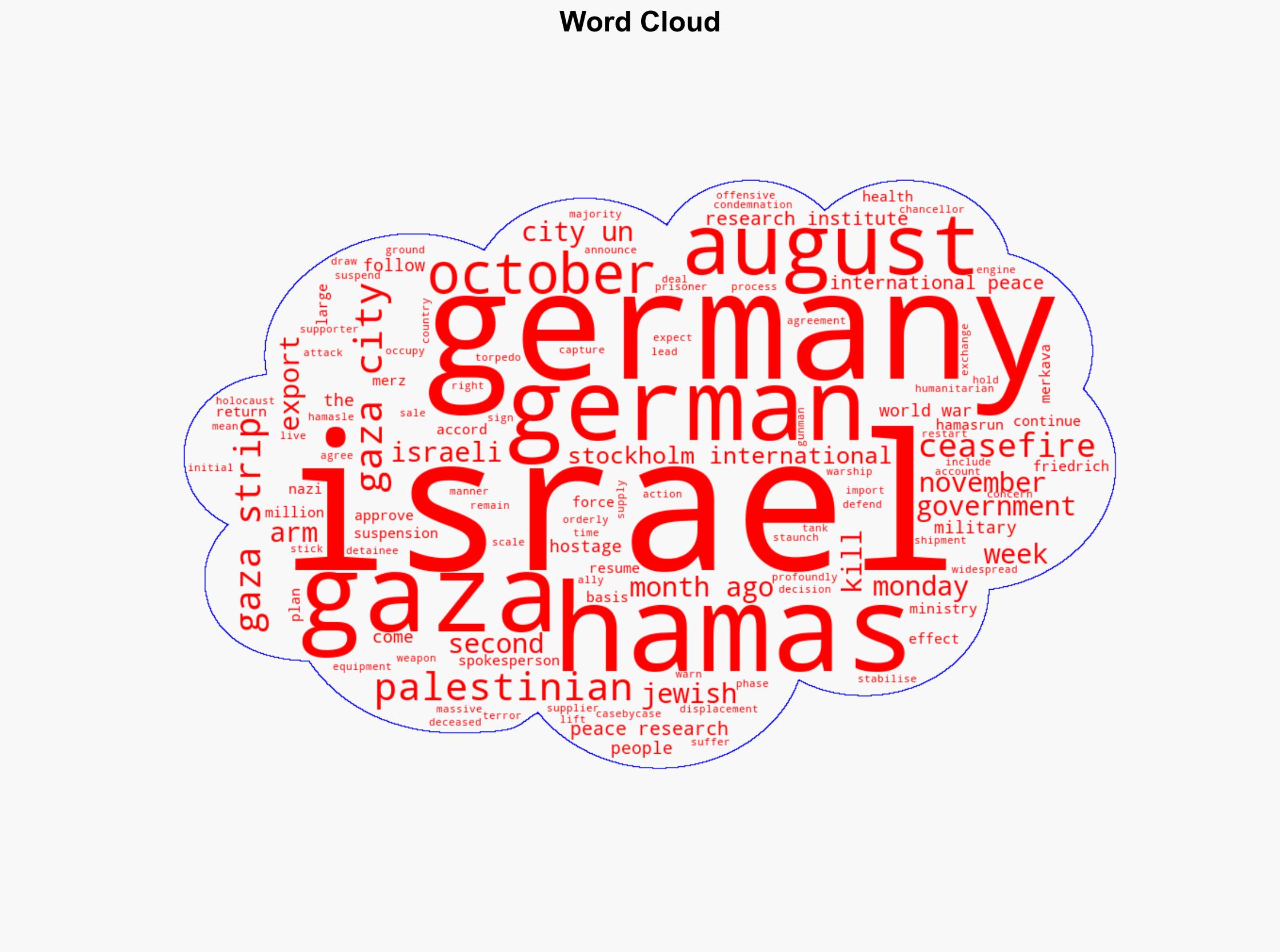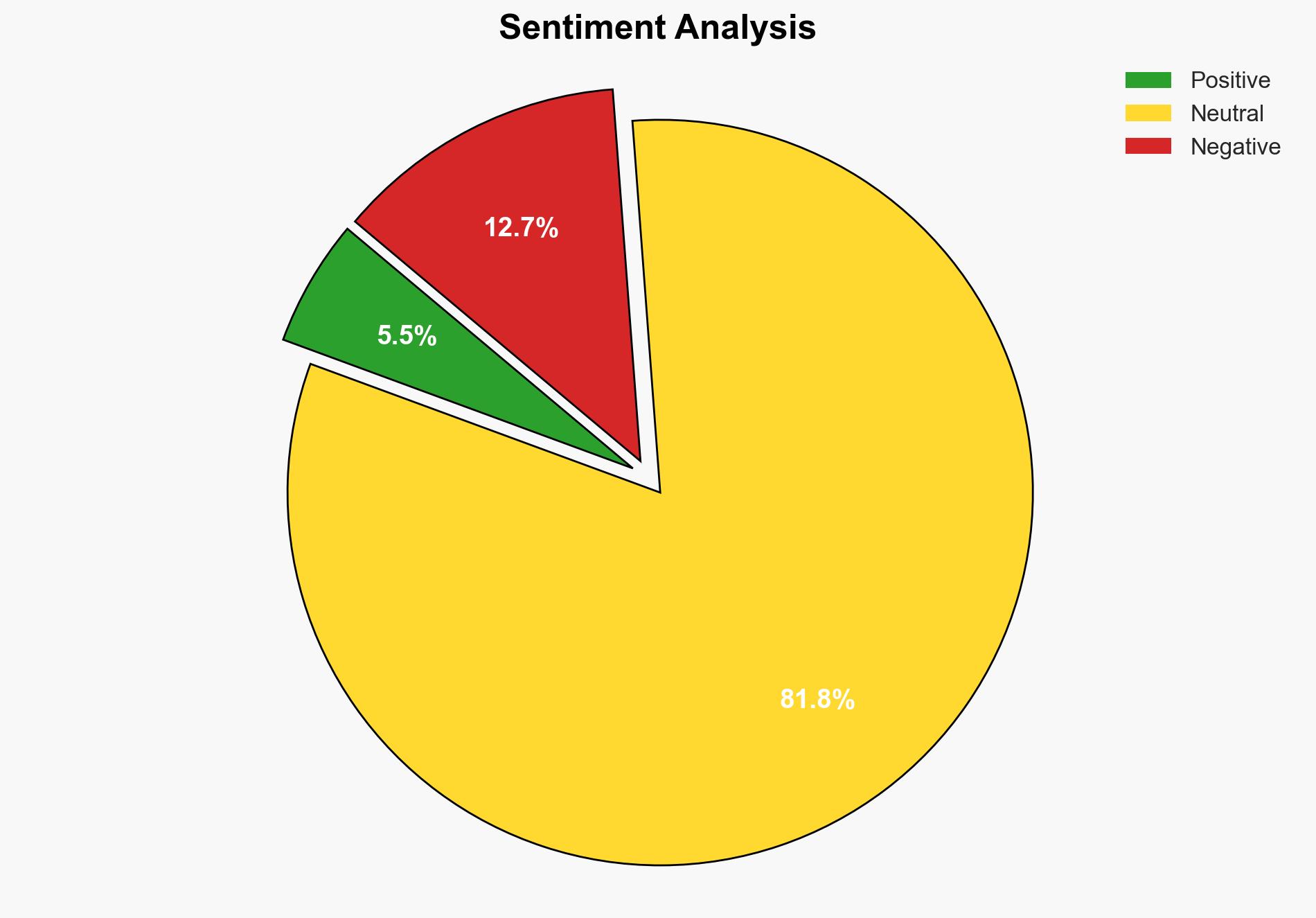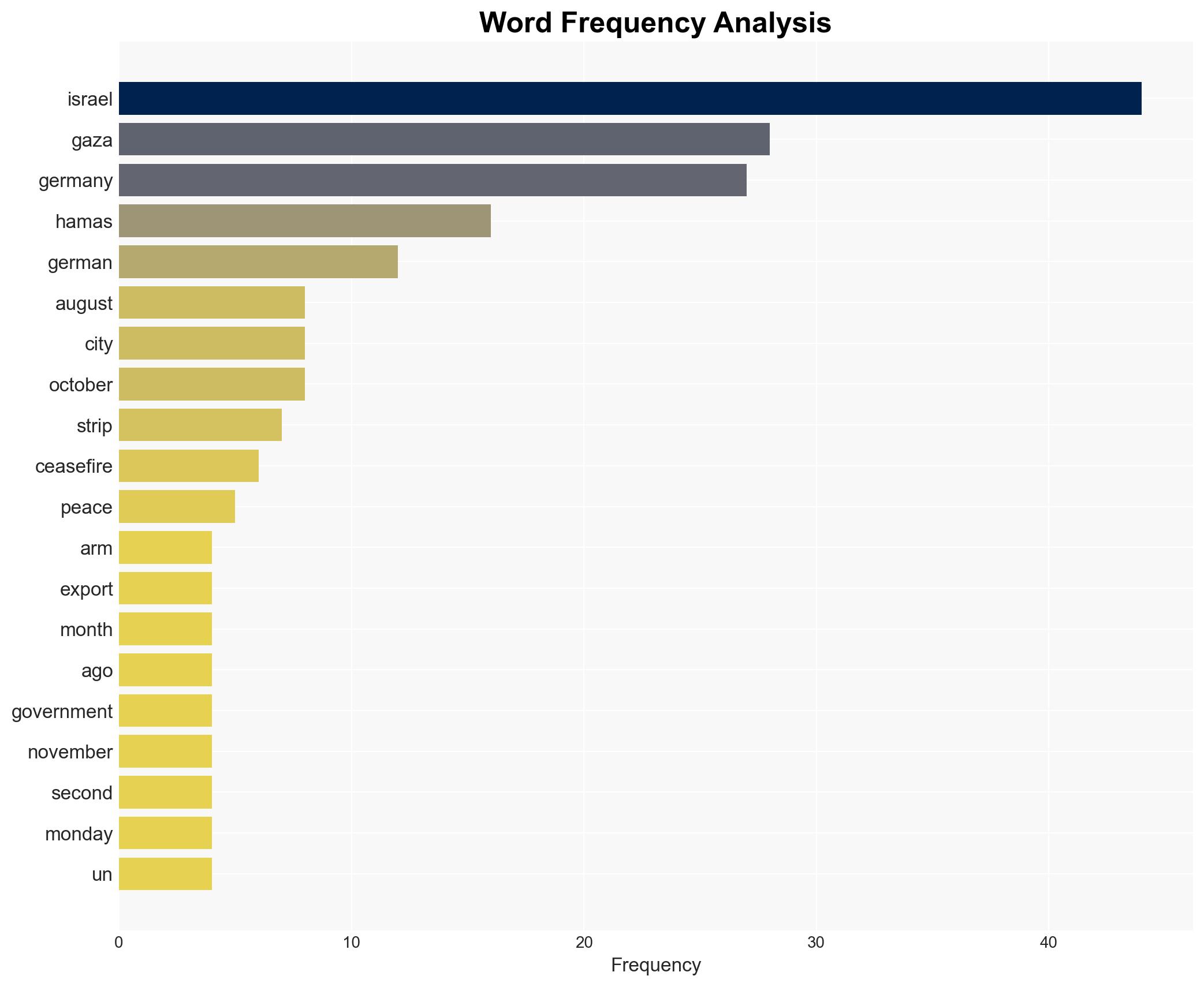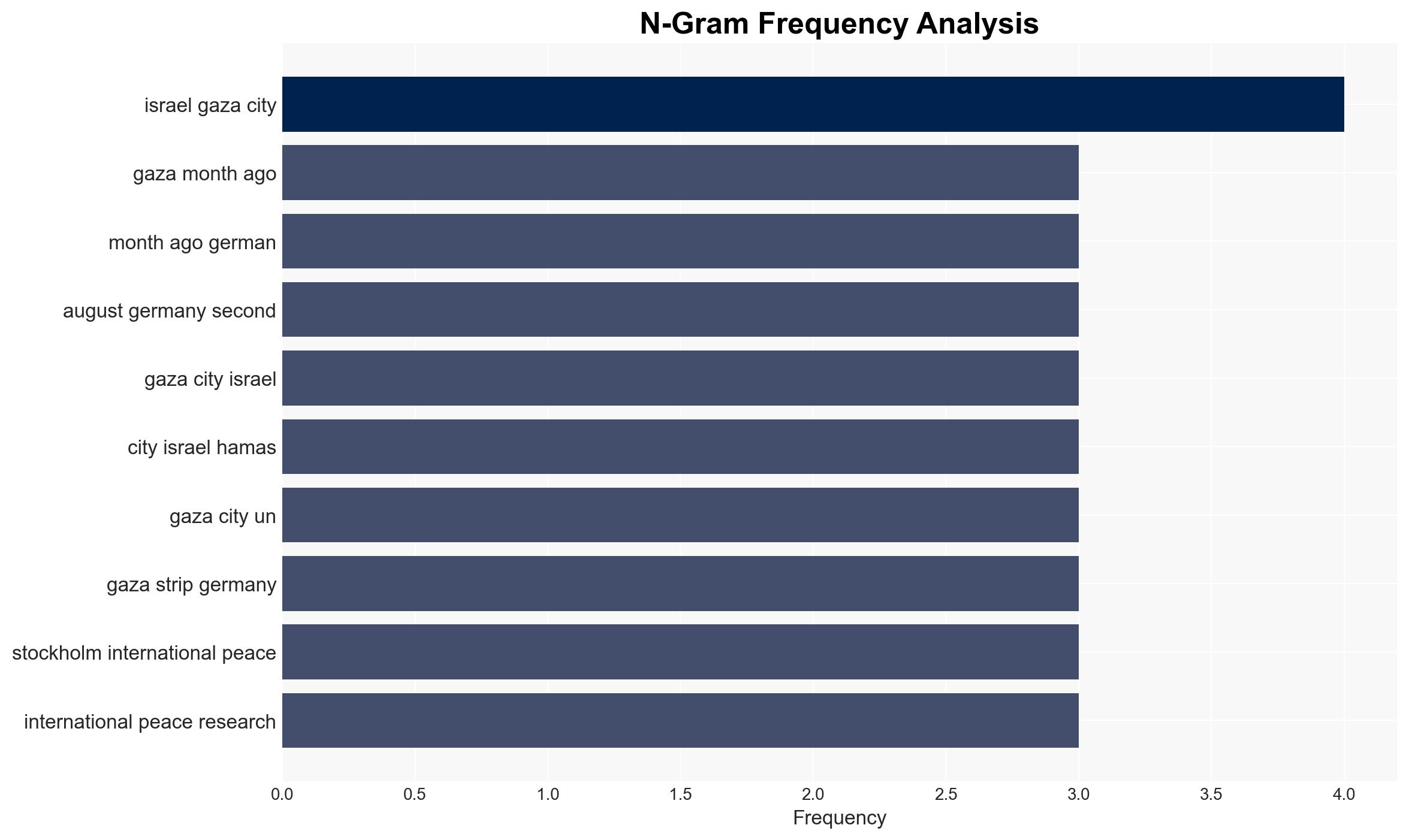Germany to resume arms exports to Israel after ceasefire – BBC News
Published on: 2025-11-17
AI-powered OSINT brief from verified open sources. Automated NLP signal extraction with human verification. See our Methodology and Why WorldWideWatchers.
Intelligence Report: Germany Resumes Arms Exports to Israel
1. BLUF (Bottom Line Up Front)
The resumption of German arms exports to Israel, following a ceasefire in Gaza, is likely a strategic move to reinforce bilateral relations and support Israel’s defense capabilities. This decision is assessed with moderate confidence as primarily driven by geopolitical considerations, with Germany balancing its historical ties and current geopolitical pressures. Recommended actions include monitoring the ceasefire’s stability and preparing contingency plans for potential regional escalations.
2. Competing Hypotheses
Hypothesis 1: Germany’s decision to resume arms exports to Israel is primarily motivated by a desire to strengthen bilateral relations and support Israel’s defense needs in the context of regional instability.
Hypothesis 2: The resumption is a tactical response to geopolitical pressures, including maintaining influence in Middle Eastern affairs and aligning with Western allies, particularly the United States.
The first hypothesis is more likely due to Germany’s historical commitment to Israel’s security and its role as a significant arms supplier. The second hypothesis, while plausible, is less supported by direct evidence but remains a factor in broader strategic calculations.
3. Key Assumptions and Red Flags
Assumptions include the belief that the ceasefire will hold and that Germany’s actions will not provoke significant backlash from other regional actors. A red flag is the potential for renewed hostilities, which could undermine the ceasefire and lead to international criticism of Germany’s arms exports. Deception indicators could involve misrepresentations of the ceasefire’s stability by involved parties.
4. Implications and Strategic Risks
The decision could lead to cascading threats, including political backlash from countries opposing arms exports to conflict zones. Economic risks involve potential sanctions or trade restrictions from entities critical of arms sales. Informational risks include negative media portrayal affecting Germany’s international image. Escalation scenarios include renewed conflict in Gaza, potentially drawing Germany into diplomatic disputes.
5. Recommendations and Outlook
- Monitor the ceasefire’s stability and prepare diplomatic responses to potential escalations.
- Engage in dialogue with regional actors to mitigate backlash and promote peace efforts.
- Best-case scenario: The ceasefire holds, strengthening German-Israeli relations and regional stability.
- Worst-case scenario: Renewed conflict leads to international condemnation and economic repercussions for Germany.
- Most-likely scenario: Germany navigates geopolitical pressures while maintaining arms exports, with periodic diplomatic challenges.
6. Key Individuals and Entities
Chancellor Friedrich Merz: German leadership role in decision-making.
Hamas: Key actor in the ceasefire and potential source of renewed conflict.
Israeli Government: Recipient of arms exports and partner in ceasefire efforts.
7. Thematic Tags
Counter-Terrorism, Geopolitical Strategy, Arms Trade, Middle East Stability
Structured Analytic Techniques Applied
- ACH 2.0: Reconstruct likely threat actor intentions via hypothesis testing and structured refutation.
- Indicators Development: Track radicalization signals and propaganda patterns to anticipate operational planning.
- Narrative Pattern Analysis: Analyze spread/adaptation of ideological narratives for recruitment/incitement signals.
Explore more:
Counter-Terrorism Briefs ·
Daily Summary ·
Support us
·





